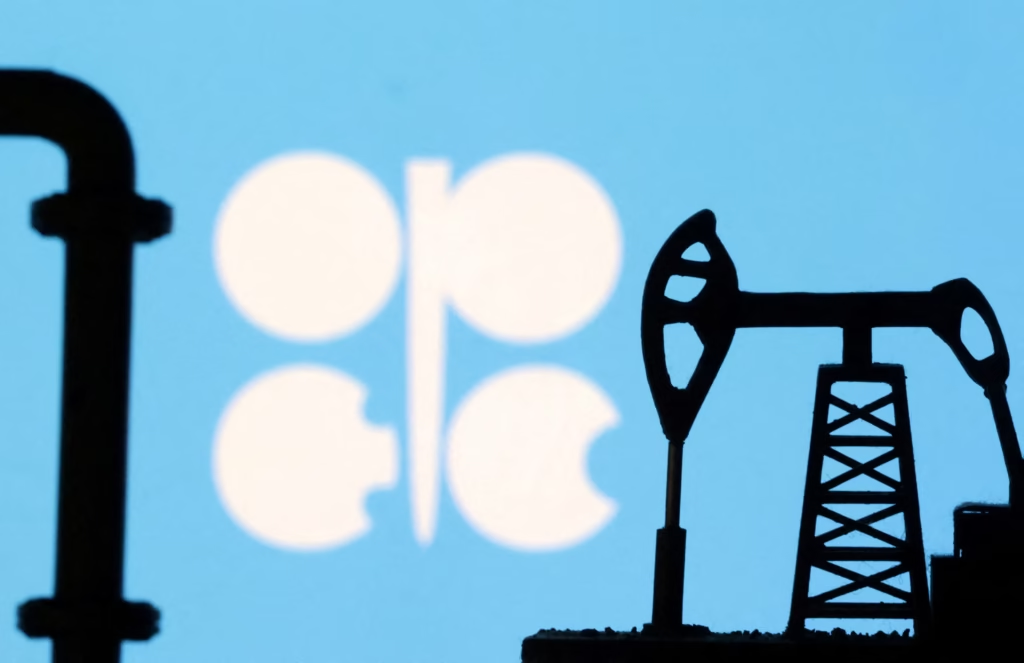The OPEC+ group, a coalition of the world’s largest oil-producing nations, has announced plans to increase oil production in the coming months. This decision comes after months of keeping output levels tight to stabilize prices. The announcement is expected to influence global energy markets, affecting everything from fuel prices at the pump to inflation and national budgets.
The OPEC+ oil production increase is a coordinated move led by key players like Saudi Arabia, Russia, and the United Arab Emirates. The decision was made after evaluating supply and demand forecasts and consulting with global partners.
Why Did OPEC+ Decide to Boost Oil Production Now?
OPEC+ members said the increase is meant to balance global energy needs. Many economies are recovering faster than expected, leading to higher energy demands. However, some OPEC+ nations had previously kept production low to support prices. Now, they believe it’s time to respond to growing demand without causing a supply glut.

Several factors contributed to this move:
- Growing global oil demand, especially from Asia.
- High inflation and pressure from major economies to lower fuel costs.
- Stronger-than-expected economic activity in countries like China and India.
- Calls from the U.S. and Europe urging OPEC+ to pump more oil.
Which Countries Will Increase Oil Output?

The increase in oil production will be carried out by several key OPEC+ countries:
- Saudi Arabia will take the lead, contributing the largest share.
- Russia, despite sanctions and export limits, will also raise output slightly.
- United Arab Emirates (UAE) is expected to increase production based on its advanced oil infrastructure.
- Iraq and Kuwait will also contribute, though to a lesser extent.
This plan will be rolled out gradually, with monthly reviews to adjust based on demand, supply conditions, and geopolitical developments.
Impact on Global Oil Prices
The OPEC+ oil production increase may bring some relief to countries struggling with high energy costs. By adding more barrels of oil into the global market, prices could stabilize or even decline. However, this effect may not be immediate.
Experts predict:
- A possible short-term dip in crude oil prices.
- Increased oil exports from Gulf nations.
- Reduced pressure on importing nations like India, Japan, and the U.S.
Still, some analysts caution that any price drop may be limited if global demand continues to rise.
Will Consumers Feel the Change?
Yes, but it might take time. The global oil supply chain involves several steps—from production and shipping to refining and distribution. If prices at the crude oil level drop, it could take weeks or even months for consumers to see changes at the fuel pump.
In the long run, though, a stable oil supply could help reduce:
- Gasoline and diesel prices
- Shipping and manufacturing costs
- Pressure on central banks to raise interest rates
This means the average consumer might see cheaper travel, lower grocery prices, and reduced inflation pressure.
How the Market Reacted to the Announcement
The news of the OPEC+ oil production increase had an immediate impact on global financial markets:
- Brent crude futures dropped slightly as traders anticipated higher supply.
- Energy stocks in the Gulf saw modest gains.
- Currencies of oil-exporting countries like the Saudi Riyal and Russian Ruble showed increased strength.
Stock markets in Asia and Europe responded positively, especially in countries that rely heavily on oil imports.
Geopolitical and Environmental Reactions

The decision has sparked mixed reactions globally. While some governments have welcomed the move, environmental groups expressed concern.
- U.S. and European officials largely welcomed the increase, seeing it as a move to ease inflation.
- Developing countries in Africa and Asia praised the decision, as it may bring down import costs.
- Climate advocates criticized the move, saying it prolongs dependence on fossil fuels at a time when clean energy investment is more urgent than ever.
Some observers also raised concerns that increased production could lead to renewed tension among OPEC+ members if prices fall too much.
What’s Next for OPEC+?
The group emphasized that the production increase is not permanent. OPEC+ will continue to monitor the global oil market and adjust production based on supply-demand trends, geopolitical factors, and member consensus.
Future scenarios could include:
- Rolling back the increase if prices fall too sharply.
- Further expanding output if demand grows faster than expected.
- Introducing quotas or incentives to maintain market balance.
The next OPEC+ meeting will take place in the coming weeks to review initial outcomes and make adjustments as necessary.
Final Thoughts: A Careful Balancing Act Ahead
The OPEC+ oil production increase reflects the group’s attempt to balance global economic recovery with energy price stability. While the move may bring temporary relief to consumers and businesses, it also underscores how delicate the energy equation is.
The world will be watching how OPEC+ manages the coming months, as energy remains a key driver of economic and political change globally. From inflation trends to climate goals, the group’s decisions will continue to impact billions of lives.
Read More: UAE Tourists Japan Visa Extension: Stay Up to 90 Days Visa-Free Starting July 1













